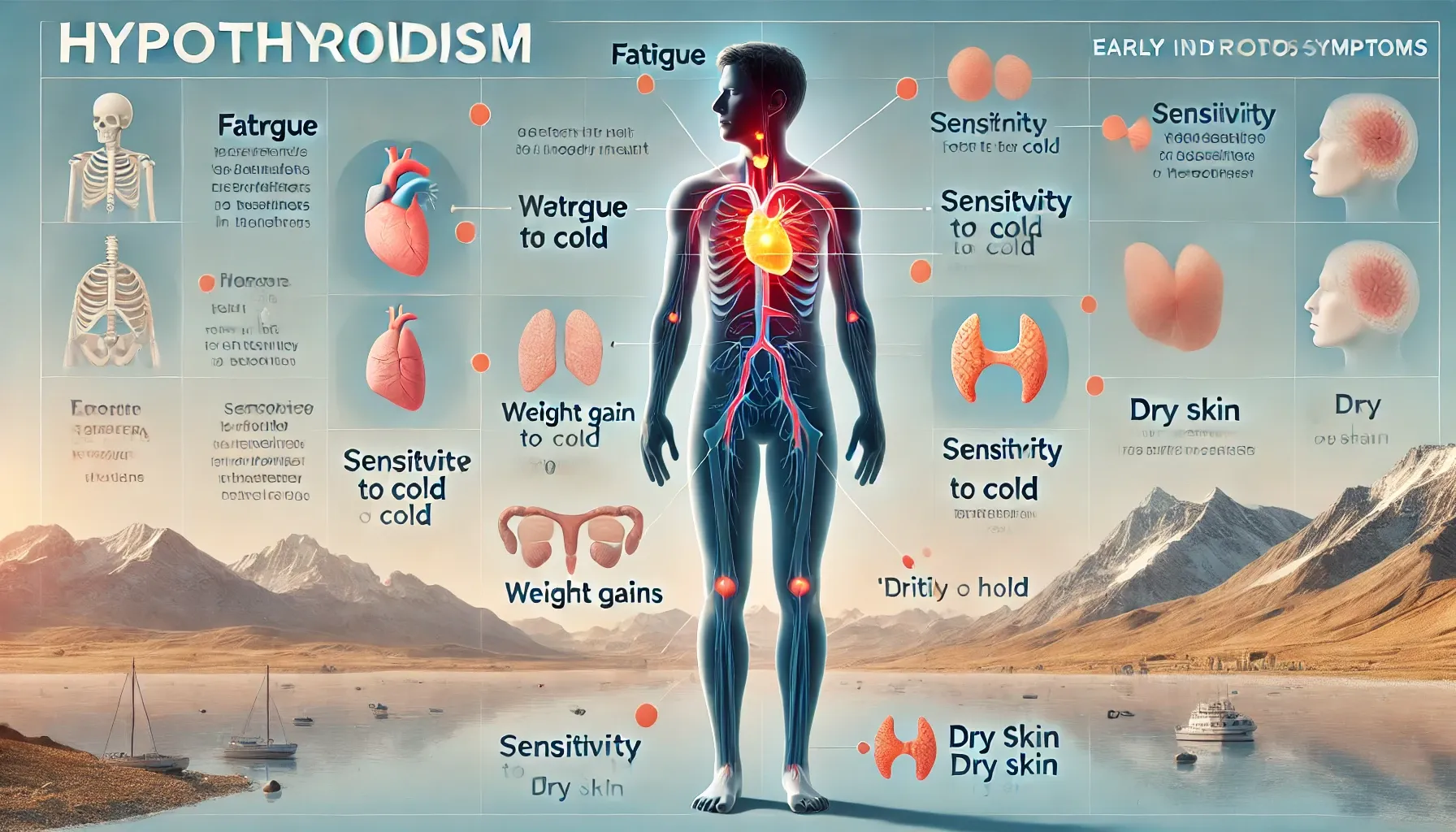Recognizing the Early Indicators of an Underactive Thyroid
Hypothyroidism occurs when the thyroid produces insufficient hormones, affecting essential body functions. Early detection allows for timely medical advice and effective health management, as symptoms vary from person to person.

1. Persistent Fatigue and Weight Gain
One of the earliest signs of an underactive thyroid is constant fatigue, even after a full night’s sleep. If you’re feeling unusually tired or drained, it could be due to a slowed metabolism caused by low thyroid hormone production. This hormonal imbalance can also result in unexplained weight gain, despite no changes to your diet or exercise routine. Unlike typical weight fluctuations, this gain is often stubborn and difficult to shed.
2. Sensitivity to Cold
Feeling unusually cold in warm environments could signal a thyroid issue. The thyroid plays a key role in temperature regulation, and a decrease in hormone production can make it harder for your body to maintain a normal internal temperature. If you’re constantly reaching for a sweater when others are comfortable, it’s worth noting this change.
3. Changes in Hair and Skin
Thyroid hormones support the health and regeneration of hair and skin cells. When hormone production decreases, you may notice dry, itchy skin that doesn’t improve with moisturizers. Hair may become brittle, dull, or thin, with breakage more common than usual. If you’re noticing significant changes in your skin’s texture or your hair’s health, it may be linked to thyroid dysfunction.
4. Muscle Weakness, Aches, and Stiff Joints
If you’re experiencing frequent muscle weakness, aches, or stiffness—particularly in the arms, legs, or joints—this could be an indicator of hypothyroidism. Thyroid hormones play an essential role in muscle health and function. Reduced hormone production can lead to muscle fatigue, soreness, and joint discomfort, all of which may interfere with daily activities.
5. Mood Changes and Mental Health Issues
Hormonal imbalances can have a significant impact on brain function and mental health. Low thyroid hormone levels may alter neurotransmitter activity, leading to mood swings, anxiety, or depression. If you’re feeling persistently down or anxious without a clear reason, consider discussing this with your healthcare provider, as it may be linked to thyroid health.
6. Irregular Menstrual Cycles
For women, an underactive thyroid can cause changes in the menstrual cycle. Heavier, more prolonged periods are a key sign of hypothyroidism. The thyroid plays a role in regulating reproductive hormones, and any imbalance can result in changes to menstrual flow or cycle regularity. If you’re noticing longer or heavier periods, it’s a good idea to discuss it with a healthcare professional.

